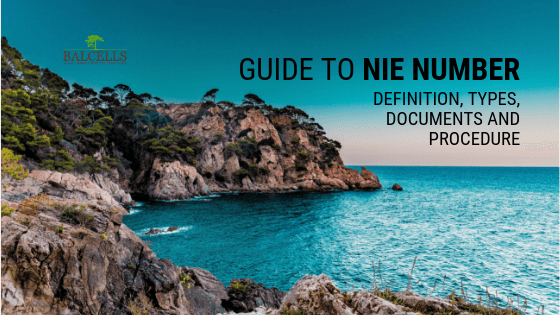Navigating the Spanish System: The Importance of the NIE Number
When it comes to living or working in Spain, there is one vital document that you need to have in your possession: the NIE number. This unique identification number, also known as the Número de Identificación de Extranjero, plays a crucial role in various aspects of life in Spain. From opening a bank account to buying a property, obtaining a job, or even starting a business, the NIE number is an essential requirement.
So, what exactly is the NIE number? In Spain, it serves as an identification number for foreigners, enabling them to interact with the country’s legal, administrative, and financial systems. Whether you are a resident or non-resident, the NIE number is indispensable for carrying out numerous transactions and formalities. It also serves as a means of tracking your fiscal obligations, ensuring that you are correctly registered and fulfilling your responsibilities.
Navigating the Spanish system without a NIE number can be a daunting task. This guide aims to help you understand the significance of the NIE number in Spain and provide a comprehensive overview of the process involved in obtaining one. Whether you are a student, professional, retiree, or investor, having a clear understanding of the NIE number is crucial for a smooth and hassle-free experience in the Spanish system. So, let’s dive in and explore the ins and outs of the NIE number in Spain.
What is a NIE Number in Spain?
The NIE Number in Spain is an identification number that is crucial for foreigners residing in the country. It stands for Número de Identificación de Extranjero and is issued by the Spanish authorities. This unique number serves as a way to identify individuals who are not Spanish citizens but are living or working in Spain.
Having a NIE Number is essential for a variety of reasons. First and foremost, it is a legal requirement for anyone who plans to stay in Spain for an extended period of time. Whether you are looking to work, study, or simply enjoy the Spanish lifestyle, obtaining a NIE Number is essential to ensure you are properly registered and recognized by the authorities.
Moreover, the NIE Number in Spain is not only important for administrative purposes but also plays a crucial role in various transactions. Whether you are opening a bank account, purchasing property, or even starting a business, having a NIE Number is often a prerequisite. It allows you to engage in legal and financial activities within the Spanish system, ensuring smooth processes and compliance with the law.
In summary, the NIE Number is a vital identification number for foreigners in Spain. It is required by law and facilitates various administrative and practical matters. Whether you are planning a short visit or a long-term stay, obtaining a NIE Number should be a top priority to navigate the Spanish system effectively.
Why is the NIE Number important?
The NIE Number is an essential identification document for anyone planning to stay or work in Spain. It holds significant importance due to various reasons.
Firstly, the NIE Number is required for any legal transaction in Spain, such as opening a bank account, buying property, or signing a work contract. It acts as your unique identification number and is necessary to ensure smooth and secure processes within the Spanish system.
Secondly, the NIE Number is crucial for fiscal purposes. Whether you are a resident or non-resident, having this number is essential for paying taxes, obtaining social security benefits, or completing any financial transactions. Without it, navigating through Spain’s tax and financial system becomes incredibly challenging.
Lastly, the NIE Number is also necessary for accessing public services in Spain. This includes healthcare, education, or social welfare programs. Having this number ensures that you can avail yourself of these services and enjoy the benefits entitled to residents and workers in Spain.
In conclusion, the NIE Number holds immense importance in the Spanish system. It enables you to engage in legal transactions, comply with fiscal obligations, and access essential public services. Whether you are a resident or a non-resident, obtaining this number is vital for a smooth and hassle-free experience in Spain.
How to obtain a NIE Number in Spain
To obtain a NIE Number in Spain, there are a few steps you need to follow. Here is a guide to help you through the process.

Firstly, you will need to gather all the necessary documents. Make sure to have your valid passport or ID card, and any supporting documentation that may be required, such as a letter from your employer or proof of residence.
Once you have the required documents, the next step is to make an appointment at the nearest Spanish embassy or consulate in your country. It is important to note that some locations may have specific requirements or procedures, so it’s best to check beforehand.
During your appointment, you will need to fill out an application form and provide the necessary documents. The embassy or consulate will guide you through the process and let you know if any additional documentation is required.
After submitting your application, you will usually be given a receipt or proof of application. This document is important as it serves as temporary proof of your NIE Number while you wait for it to be officially issued.
The processing time for a NIE Number can vary, but it typically takes a few weeks. Once your NIE Number is ready, you will be notified by the Spanish embassy or consulate. You can then pick up your NIE Number certificate in person or arrange for it to be mailed to your address.
Remember, having a NIE Number in Spain is essential for various activities, such as opening a bank account, buying property, or starting a business. By following these steps, you will be well on your way to obtaining your NIE Number and navigating the Spanish system effortlessly.